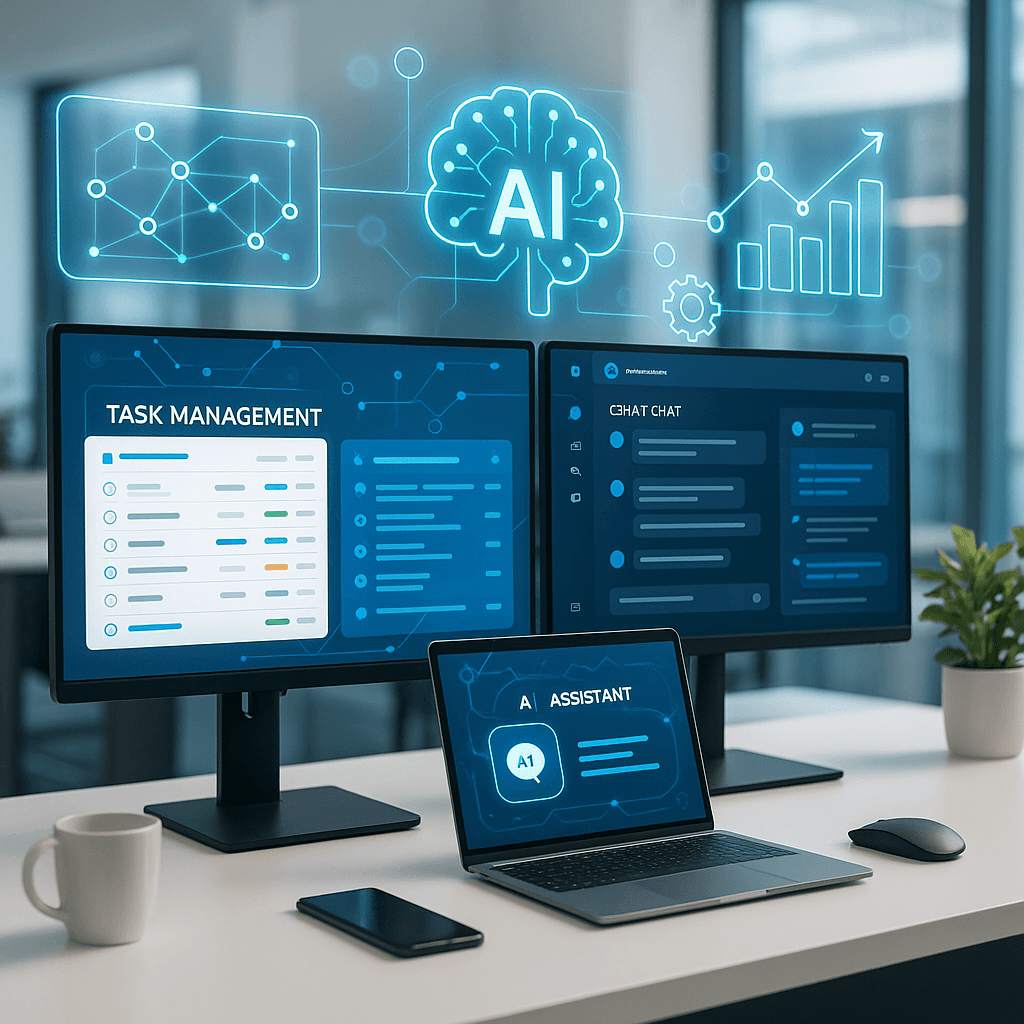ClickUp just fired its biggest shot yet in the productivity wars. The a16z-backed company launched two AI agents alongside a complete platform redesign, directly targeting Slack and Notion's dominance. With $300 million in annual recurring revenue and IPO plans within two years, ClickUp's betting everything on becoming the one-stop shop for workplace software.
ClickUp isn't just adding AI features - it's declaring war on the entire productivity software stack. The company's 4.0 release represents the most aggressive challenge yet to Slack, Notion, and Microsoft Teams' stranglehold on workplace collaboration. With two new AI agents and a completely redesigned interface, ClickUp wants to be the last productivity app teams ever need to install. The timing couldn't be more strategic. As companies struggle with AI tool sprawl and context switching fatigue, ClickUp's betting that consolidation wins over specialization. CEO Zeb Evans told TechCrunch the vision remains unchanged from eight years ago: "replace all of your work software." But now AI makes that possible in ways spreadsheets and task lists never could. The company's first AI agent lives inside every communication channel, proactively hunting for questions and answering them using internal knowledge and external sources like Google Drive, OneDrive, Figma, and Gmail. Think of it as Slack's search on steroids, but with the intelligence to understand context and intent rather than just matching keywords. The second agent, called Brain, handles the heavy lifting that makes productivity tools actually productive. It schedules meetings based on teammate availability, creates tasks, analyzes reports, and drafts documents. Unlike chatbot interfaces that force you into text conversations, Brain lives in ClickUp's sidebar and works across the entire platform interface. This represents a fundamentally different approach than Notion's recent agent launch, which focuses on data analysis and workflow automation within documents. ClickUp's agents are designed to eliminate the need for separate communication tools entirely. The 4.0 redesign makes this consolidation play obvious. Users can now view internal company forums, switch between communication channels, and manage tasks from a unified sidebar. It's essentially recreating the Slack experience inside a project management platform, complete with live video calls through its Syncups feature. ClickUp's timing benefits from a major acquisition advantage. The core AI functionality became possible through its , the enterprise search startup that raised over $29.5 million from Salesforce Ventures, Atomico, and other top-tier investors. Qatalog's technology powers the cross-platform search and knowledge integration that makes ClickUp's agents actually useful rather than just another chatbot. The financial momentum backing this strategy is impressive. Evans revealed ClickUp has crossed $300 million in annual recurring revenue and plans to go public within two years. The company has raised over $537 million from investors including a16z, Tiger Global, Craft Ventures, and Lightspeed. That war chest positions ClickUp to compete directly with Microsoft's billions in productivity software R&D. The competitive landscape shows why ClickUp's all-in bet makes sense. , but it remains trapped within Salesforce's ecosystem. Notion's agents excel at document workflows but can't replace communication tools. Microsoft Teams has AI features but suffers from the complexity of the broader Office suite. ClickUp's calendar integration showcases the power of unified data models. The tool can automatically reschedule meetings and adjust task priorities based on what you mark as urgent. It also provides internet-style team dashboards where managers can track progress across channels and see who's taking time off. These features only work when one platform controls all the data - something impossible in the fragmented tool landscape most teams use today. The company's strategy reflects broader industry trends toward AI-powered consolidation. As Evans noted, "In the age of AI, they're needed to an even greater extent because you can't really visualize things in AI within a chat interface." Traditional productivity tools built around documents, spreadsheets, and chat channels weren't designed for AI workflows that need to understand context across multiple data types. ClickUp's biggest risk is execution complexity. Building a platform that matches Slack's communication features, Notion's document capabilities, and Teams' integration ecosystem requires maintaining excellence across multiple product categories. Most companies struggle to dominate even one category - trying to own them all could dilute focus and create mediocre experiences everywhere. But the potential payoff justifies the risk. If ClickUp succeeds, it doesn't just win market share - it redefines how teams think about productivity software. Instead of managing dozens of specialized tools, organizations could operate from a single AI-powered platform that understands their entire workflow context.












